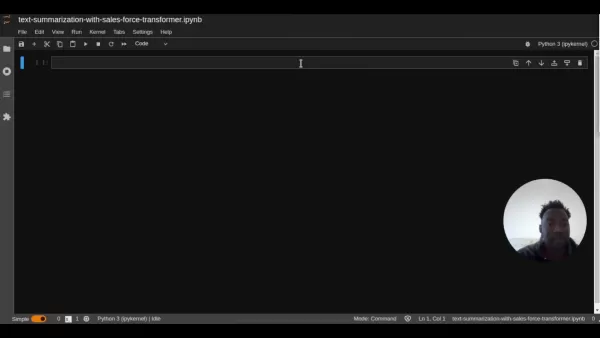The great cognitive migration: How AI is reshaping human purpose, work and meaning

The Dawn of Cognitive Migration
Throughout history, humanity has migrated not just across physical landscapes, but across ideas and ways of living. As glaciers receded or rivers swelled, survival demanded movement. Today, we face a migration of a different sort—one that isn’t driven by geography but by the relentless march of artificial intelligence. AI is reshaping the very fabric of thought, much like an earthquake would reshape the earth’s surface. While we stand on the precipice of this transformation, its full scope remains elusive. Yet one thing is clear: the groundwork for this cognitive migration has already begun.
From Essays to Illnesses: AI Takes the Reins
Imagine a world where machines write essays, diagnose illnesses, and draft legal contracts. That world isn’t far off—it’s here. Tasks once considered the exclusive domain of highly trained professionals are now being executed by AI with remarkable speed and accuracy. These systems don’t just mimic—they infer, connect, and synthesize knowledge in ways previously thought impossible. Consider the example of Princeton historian Graham Burnett, who marveled at how Google’s NotebookLM drew a surprising parallel between Enlightenment philosophy and a modern TV ad. Such insights underscore the fact that AI is no longer merely a tool; it’s becoming a collaborator, one capable of redefining intellectual boundaries.
Where Machines Advance, Humans Must Move
Moravec’s Paradox offers a lens through which to view this migration. The paradox states that what humans find challenging—like navigating crowded streets or sensing sarcasm—is simple for machines, while tasks we consider trivial—like solving puzzles—are daunting for them. As AI continues to excel in logical and analytical domains, humans must pivot toward realms where our strengths shine: creativity, emotional intelligence, and the ability to weave meaning across generations. These are the new frontiers where human value will persist.
- Nurses, electricians, and frontline service workers may weather the storm better than others, thanks to their reliance on interpersonal skills and embodied judgment.
- But even those roles will eventually evolve, forcing us to redefine what work means in an AI-driven economy.
The Uneven Terrain Ahead
This migration won’t happen uniformly. Some industries will feel the tremors sooner than others, and not everyone will adapt at the same pace. Education systems, designed for yesterday’s workforce, are struggling to prepare students for tomorrow’s realities. Organizations clinging to outdated metrics risk obsolescence. Meanwhile, countless individuals may find themselves adrift, searching for purpose in a world where machines have taken over their former roles.
Hope Amidst Uncertainty
Geoffrey Hinton, the AI pioneer who won the 2024 Nobel Prize in Physics, acknowledges the unsettling nature of this transition. Yet he remains hopeful, arguing that AI could ultimately expand human capabilities rather than replace them. MIT economist David Autor envisions a future where middle-class jobs are reinvented, leveraging AI as a partner rather than a competitor. Achieving this vision requires intentional effort and collective will.
A Call to Embrace Humanity
As we navigate this cognitive migration, let’s remember that the essence of being human lies in qualities AI cannot replicate: imagination, empathy, and moral wisdom. The challenge of our time isn’t just to build better machines but to rediscover and celebrate what makes us uniquely human. After all, the future isn’t something we enter—it’s something we create.
Related article
 Seeking Faith and Purpose in an Age of Skepticism
In our modern age of scientific inquiry and critical thinking, maintaining spiritual faith often feels like walking against the tide. Many struggle to reconcile timeless beliefs with contemporary skepticism, leaving them longing for deeper meaning. T
Seeking Faith and Purpose in an Age of Skepticism
In our modern age of scientific inquiry and critical thinking, maintaining spiritual faith often feels like walking against the tide. Many struggle to reconcile timeless beliefs with contemporary skepticism, leaving them longing for deeper meaning. T
 How ChatGPT Works: Capabilities, Applications, and Future Implications
The rapid evolution of artificial intelligence is transforming digital interactions and communication. Leading this transformation is ChatGPT, an advanced conversational AI that sets new standards for natural language processing. This in-depth examin
How ChatGPT Works: Capabilities, Applications, and Future Implications
The rapid evolution of artificial intelligence is transforming digital interactions and communication. Leading this transformation is ChatGPT, an advanced conversational AI that sets new standards for natural language processing. This in-depth examin
 Salesforce’s Transformer Model Guide: AI Text Summarization Explained
In an era where information overload is the norm, AI-powered text summarization has become an indispensable tool for extracting key insights from lengthy documents. This comprehensive guide examines Salesforce's groundbreaking AI summarization techno
Comments (2)
0/200
Salesforce’s Transformer Model Guide: AI Text Summarization Explained
In an era where information overload is the norm, AI-powered text summarization has become an indispensable tool for extracting key insights from lengthy documents. This comprehensive guide examines Salesforce's groundbreaking AI summarization techno
Comments (2)
0/200
![KevinAnderson]() KevinAnderson
KevinAnderson
 August 9, 2025 at 5:00:59 AM EDT
August 9, 2025 at 5:00:59 AM EDT
This article really got me thinking about how AI is changing what it means to be human. It's wild to imagine our purpose shifting like this—kinda exciting but also a bit scary. What happens when machines take over the 'thinking' jobs? 😅


 0
0
![TimothyWilliams]() TimothyWilliams
TimothyWilliams
 July 31, 2025 at 10:48:18 PM EDT
July 31, 2025 at 10:48:18 PM EDT
This article really got me thinking about how AI is shifting what it means to be human. It’s wild to imagine our purpose evolving so fast—kinda exciting, but also a bit scary. What’s next for us? 🤔


 0
0

The Dawn of Cognitive Migration
Throughout history, humanity has migrated not just across physical landscapes, but across ideas and ways of living. As glaciers receded or rivers swelled, survival demanded movement. Today, we face a migration of a different sort—one that isn’t driven by geography but by the relentless march of artificial intelligence. AI is reshaping the very fabric of thought, much like an earthquake would reshape the earth’s surface. While we stand on the precipice of this transformation, its full scope remains elusive. Yet one thing is clear: the groundwork for this cognitive migration has already begun.
From Essays to Illnesses: AI Takes the Reins
Imagine a world where machines write essays, diagnose illnesses, and draft legal contracts. That world isn’t far off—it’s here. Tasks once considered the exclusive domain of highly trained professionals are now being executed by AI with remarkable speed and accuracy. These systems don’t just mimic—they infer, connect, and synthesize knowledge in ways previously thought impossible. Consider the example of Princeton historian Graham Burnett, who marveled at how Google’s NotebookLM drew a surprising parallel between Enlightenment philosophy and a modern TV ad. Such insights underscore the fact that AI is no longer merely a tool; it’s becoming a collaborator, one capable of redefining intellectual boundaries.
Where Machines Advance, Humans Must Move
Moravec’s Paradox offers a lens through which to view this migration. The paradox states that what humans find challenging—like navigating crowded streets or sensing sarcasm—is simple for machines, while tasks we consider trivial—like solving puzzles—are daunting for them. As AI continues to excel in logical and analytical domains, humans must pivot toward realms where our strengths shine: creativity, emotional intelligence, and the ability to weave meaning across generations. These are the new frontiers where human value will persist.
- Nurses, electricians, and frontline service workers may weather the storm better than others, thanks to their reliance on interpersonal skills and embodied judgment.
- But even those roles will eventually evolve, forcing us to redefine what work means in an AI-driven economy.
The Uneven Terrain Ahead
This migration won’t happen uniformly. Some industries will feel the tremors sooner than others, and not everyone will adapt at the same pace. Education systems, designed for yesterday’s workforce, are struggling to prepare students for tomorrow’s realities. Organizations clinging to outdated metrics risk obsolescence. Meanwhile, countless individuals may find themselves adrift, searching for purpose in a world where machines have taken over their former roles.
Hope Amidst Uncertainty
Geoffrey Hinton, the AI pioneer who won the 2024 Nobel Prize in Physics, acknowledges the unsettling nature of this transition. Yet he remains hopeful, arguing that AI could ultimately expand human capabilities rather than replace them. MIT economist David Autor envisions a future where middle-class jobs are reinvented, leveraging AI as a partner rather than a competitor. Achieving this vision requires intentional effort and collective will.
A Call to Embrace Humanity
As we navigate this cognitive migration, let’s remember that the essence of being human lies in qualities AI cannot replicate: imagination, empathy, and moral wisdom. The challenge of our time isn’t just to build better machines but to rediscover and celebrate what makes us uniquely human. After all, the future isn’t something we enter—it’s something we create.
 Seeking Faith and Purpose in an Age of Skepticism
In our modern age of scientific inquiry and critical thinking, maintaining spiritual faith often feels like walking against the tide. Many struggle to reconcile timeless beliefs with contemporary skepticism, leaving them longing for deeper meaning. T
Seeking Faith and Purpose in an Age of Skepticism
In our modern age of scientific inquiry and critical thinking, maintaining spiritual faith often feels like walking against the tide. Many struggle to reconcile timeless beliefs with contemporary skepticism, leaving them longing for deeper meaning. T
 How ChatGPT Works: Capabilities, Applications, and Future Implications
The rapid evolution of artificial intelligence is transforming digital interactions and communication. Leading this transformation is ChatGPT, an advanced conversational AI that sets new standards for natural language processing. This in-depth examin
How ChatGPT Works: Capabilities, Applications, and Future Implications
The rapid evolution of artificial intelligence is transforming digital interactions and communication. Leading this transformation is ChatGPT, an advanced conversational AI that sets new standards for natural language processing. This in-depth examin
 Salesforce’s Transformer Model Guide: AI Text Summarization Explained
In an era where information overload is the norm, AI-powered text summarization has become an indispensable tool for extracting key insights from lengthy documents. This comprehensive guide examines Salesforce's groundbreaking AI summarization techno
Salesforce’s Transformer Model Guide: AI Text Summarization Explained
In an era where information overload is the norm, AI-powered text summarization has become an indispensable tool for extracting key insights from lengthy documents. This comprehensive guide examines Salesforce's groundbreaking AI summarization techno
 August 9, 2025 at 5:00:59 AM EDT
August 9, 2025 at 5:00:59 AM EDT
This article really got me thinking about how AI is changing what it means to be human. It's wild to imagine our purpose shifting like this—kinda exciting but also a bit scary. What happens when machines take over the 'thinking' jobs? 😅


 0
0
 July 31, 2025 at 10:48:18 PM EDT
July 31, 2025 at 10:48:18 PM EDT
This article really got me thinking about how AI is shifting what it means to be human. It’s wild to imagine our purpose evolving so fast—kinda exciting, but also a bit scary. What’s next for us? 🤔


 0
0





























